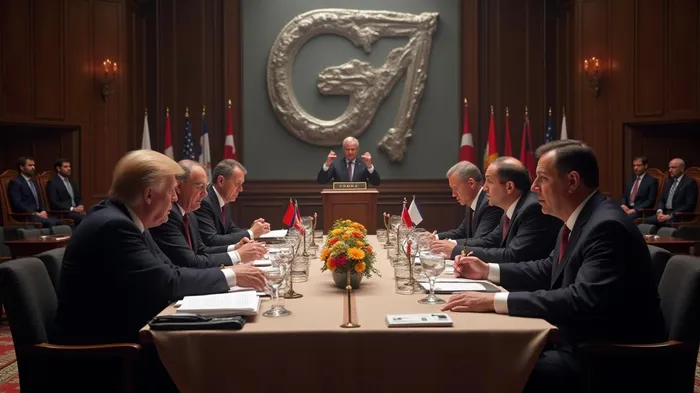G7 Language Shift Could Weaken Dollar by 10%
Chris Turner, the head of foreign exchange strategy at INGING--, has highlighted that the language used to describe foreign exchange policy at the upcoming G7 meeting is unlikely to change. However, any adjustments, even minor ones, could trigger a strong reaction and potentially weaken the U.S. dollar. Turner, in an email report, noted that in the past, particularly during the 1990s and 2000s, such joint statements were crucial tools for communicating changes in exchange rate policies. He questioned whether the U.S. Treasury might attempt to persuade other G7 members to adjust the language in the foreign exchange section, thereby encouraging other currencies to appreciate against the dollar in an orderly manner. Alternatively, the U.S. might make certain adjustments to the language to reflect more external balance in currency movements.
The potential for changes in the G7 statement comes at a time when global economic conditions are highly sensitive to shifts in currency values. The U.S. dollar has been a dominant force in international trade and finance, and any signal from the G7 that could alter its strength would have far-reaching implications. Turner's comments highlight the delicate balance that policymakers must maintain, as even subtle changes in language can have significant market impacts.
The G7, comprising the United States, Canada, France, Germany, Italy, Japan, and the United Kingdom, has historically played a pivotal role in shaping global economic policies. Their statements on foreign exchange policies are closely watched by market participants, as they can influence currency movements and trade dynamics. The upcoming meeting will be a critical juncture, where any hint of a policy shift could lead to market volatility and strategic adjustments by central banks and financial institutionsFISI--.
Turner's analysis underscores the importance of the G7's role in maintaining global financial stability. The group's ability to coordinate policies and communicate effectively can mitigate risks and foster a more predictable economic environment. As the world continues to navigate the complexities of post-pandemic recovery and geopolitical tensions, the G7's actions will be under intense scrutiny. The potential for a change in the G7 statement, even if minor, could set the stage for significant shifts in currency markets and global trade dynamics.
Turner also noted that persuading the European Central Bank and eurozone finance ministers to approve such changes would be challenging. They would likely want to avoid a significant rise in the euro/dollar exchange rate, which could exacerbate trade challenges. Despite this, Washington is currently negotiating trade agreements with up to 20 countries, and there is little transparency regarding the actual negotiating leverage being used. Turner concluded that while the probability of such a change is low, the impact could be high, potentially leading to a significant decline in the dollar, particularly in the euro/dollar and dollar/yen currency pairs. This is due to the weight of the eurozone and Japan within the G7, as well as the role of the euro and yen as alternative liquidity currencies to the dollar.

Stay ahead with real-time Wall Street scoops.
Latest Articles
Stay ahead of the market.
Get curated U.S. market news, insights and key dates delivered to your inbox.

Comments
No comments yet